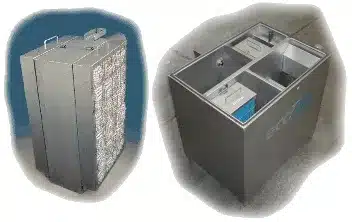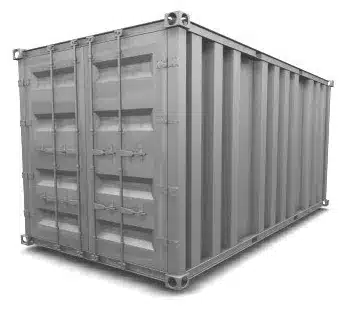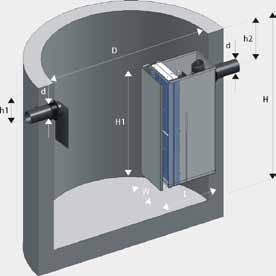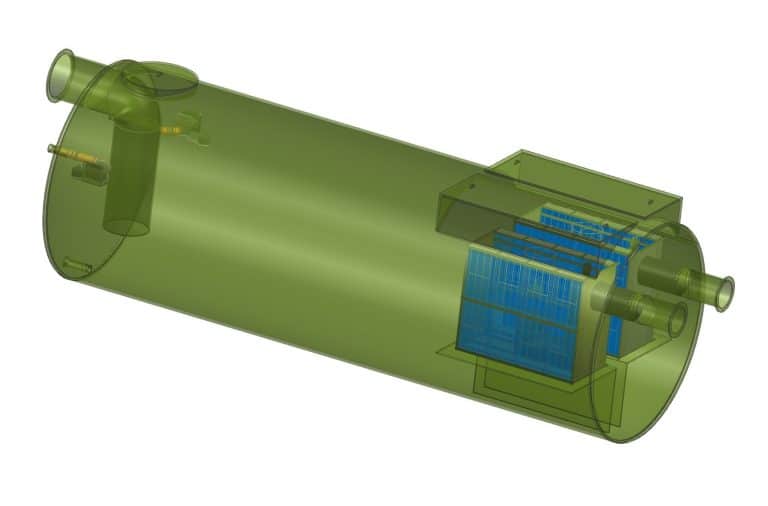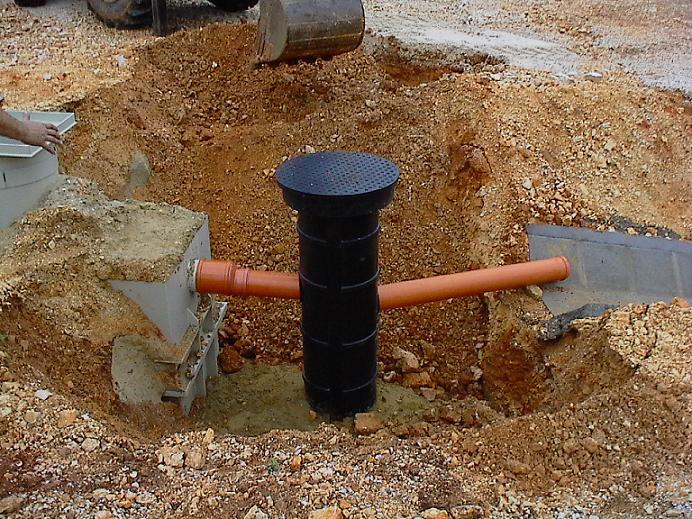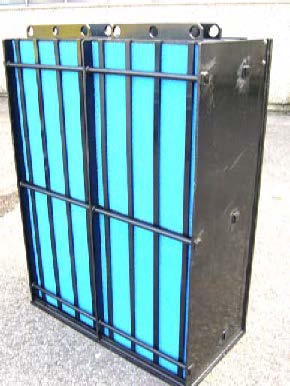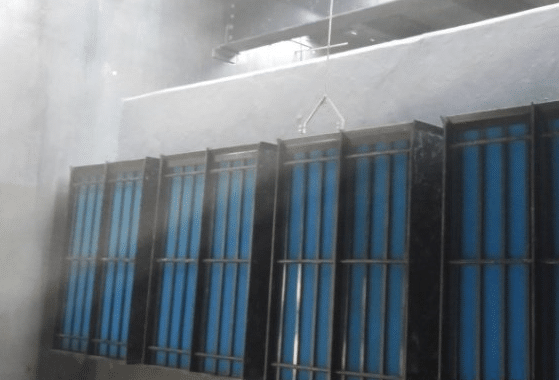Are Connecticut businesses doing enough to protect our waterways from industrial pollution? Oil Water Separator Tanks Connecticut are key to keeping our environment safe. They are crucial for handling industrial wastewater and following environmental laws in the Constitution State.
Connecticut’s industries have a big challenge in managing their wastewater. From manufacturing to car maintenance, the need for oil water separator tanks is growing. These systems remove harmful stuff from stormwater and industrial wastewater. This helps companies follow strict environmental rules.
The 2004 Connecticut Stormwater Quality Manual sets rules for oil/particle separators. These systems are important for cleaning runoff from small hard surfaces. As industries change, so must our ways of handling wastewater.
Key Takeaways
- Freytech Inc. Oil water separator tanks are vital for Connecticut’s industrial wastewater treatment
- These systems help businesses comply with state environmental regulations
- The Connecticut Stormwater Quality Manual provides guidelines for separator implementation
- Oil/particle separators are crucial for treating runoff from small impervious areas
- Proper wastewater management is essential for protecting Connecticut’s waterways
Understanding Oil Water Separator Tanks in Connecticut
Oil water separators are key in managing stormwater and treating wastewater in Connecticut. They remove pollutants from runoff before it reaches waterways. This protects the environment.
Definition and Purpose
Oil water separators take out oil, grease, and sediment from stormwater and industrial wastewater. They let oil float on top and heavy particles settle at the bottom. This leaves clean water in the middle.
Types of Oil Water Separators
In Connecticut, there are two main types of oil water separators. Conventional gravity separators use gravity to separate oil and water. Coalescing plate separators use plates to help oil droplets merge, making them more efficient.
Connecticut Regulations for Oil Water Separators
Connecticut has rules for designing, installing, and maintaining oil water separators. The Connecticut Stormwater Quality Manual sets out what these systems must be like. Businesses must follow these rules to remove pollutants effectively and protect the environment.
Benefits of Oil Water Separator Tanks for Connecticut Businesses
Oil water separator tanks offer big advantages to Connecticut businesses. They are key in following environmental laws and managing stormwater. These tanks catch oil, grease, and other floatables, helping companies meet pollution rules.
Many businesses use these tanks. They are great for parking lots, streets, truck loading areas, gas stations, and industrial sites. These tanks are good at cutting down pollutants, keeping harmful substances out of waterways.
Even though these separators can’t remove everything, they are a crucial first step in treating industrial wastewater. This step improves water quality and keeps downstream systems safe from pollution.
Businesses in Connecticut that get oil water separator tanks gain a lot in the long run. They save money, protect nature, and keep a good name in their area. These systems are key for being responsible with the environment and for sustainable business.
Oil Water Separator Tanks Connecticut: Design and Components
Oil water separator design is key to removing pollutants from stormwater runoff. Connecticut businesses have various options based on their needs and site conditions.
Conventional Gravity Separators
Conventional gravity separators use a simple yet effective method to separate oil from water. They have three chambers that trap pollutants. The first catches sediment, the second removes oil, and the third holds clean water.
This design works because oil naturally floats on water. It makes removing oil easy.
Coalescing Plate Separators
Coalescing plate separators improve oil removal. They use angled plates to enhance separation efficiency. As water flows through these plates, small oil droplets merge into larger ones, making them easier to catch.
This design is great for handling high flow rates and removing small oil particles.
Key Design Considerations
When designing an oil water separator, several factors are important. The drainage area should be one acre or less of impervious cover for best performance. Off-line configurations are often preferred for handling sudden water flow increases.
Retention tanks need a combined volume of 400 cubic feet per acre of contributing impervious area. They should be at least 4 feet deep. These design elements help remove pollutants well and keep the system efficient over time.
Installation and Maintenance of Oil Water Separator Tanks
Setting up and keeping oil water separator tanks right is crucial. They need checks every month and a deep clean every 1 to 6 months. This keeps them running well and makes them last longer.
Cleaning means taking out oil, grease, and sediment. This is done with vacuum trucks or catch basin tools. It’s important to get rid of the polluted water and sediment the right way, following all the rules.
For businesses with underground tanks, extra care is needed. Freytech Inc. in Connecticut offers expert help for setup, upkeep, and emergency spills. They make sure your system meets all state rules.
Following a regular maintenance plan helps avoid expensive repairs and keeps your system at its best. This protects the environment and keeps your business in line with Connecticut’s strict water quality laws.
These separators are crucial in storm water systems. They process runoff to meet the US EPA’s Clean Water Act standards. With effective oily water treatment, facilities protect the environment and dodge big fines.


